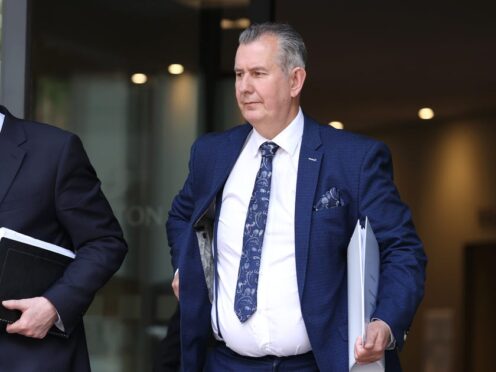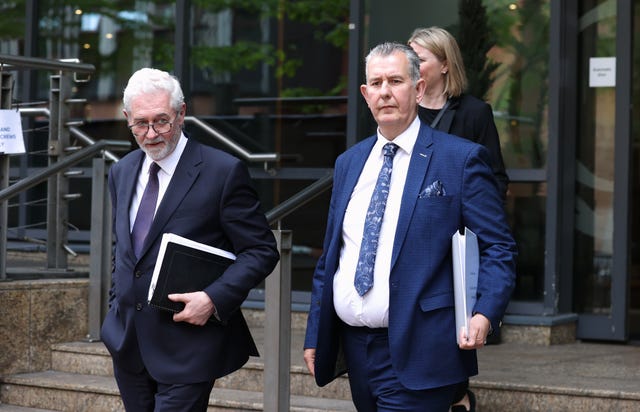
Stormont’s Department of Health was the “greatest superspreader” of Covid-19 in Northern Ireland during the early months of the pandemic, a former minister has claimed.
Edwin Poots, formerly the DUP’s agriculture minister, told the UK Covid-19 Inquiry that moving elderly people from hospitals to care homes with no form of quarantine or testing had “caused the deaths of many people needlessly”.
Mr Poots, who is now the speaker of the Northern Ireland Assembly, also became emotional giving evidence to the inquiry as he recalled the death of his own father during the pandemic.
Charlie Poots died at the age of 90 in April 2020.
Mr Poots said: “I went through that personal experience of my father becoming unwell, calling the ambulance, having him taken to hospital.
“We followed the ambulance down to the Ulster Hospital and my father went in on the trolley.
“I wasn’t allowed to see him again until he was close to dying.
“That is the experience that thousands of families had.
“It was an awful experience and it was imposed as a result of the Covid-19 regulations.
“Thousands of families across the province weren’t able to be there with their loved ones whenever they needed them most.”
Mr Poots was asked if his own personal experiences had afected the way he perceived the political response to the pandemic.
He said: “Very much so. I would have seen things like banning people from going to graveyards as being wholly ineffective in terms of saving lives, but utterly cruel in how they affected the relatives of the deceased, particularly recently deceased.
“It is something that is important to many people to be able to go to the grave of a loved one but we, the government, banned people from doing that and I didn’t see any benefits whatsoever in terms of the fight against Covid in doing that.”
The inquiry, which is sitting in Belfast for three weeks, is scrutinising the Northern Ireland Executive’s handling of the pandemic.
Mr Poots was asked to comment on health regulations introduced in Northern Ireland in March 2020 to combat the spread of the virus.
Counsel for the inquiry Nick Scott read an extract from a written statement Mr Poots had provided.
The extract said: “It transpired the greatest superspreader of Covid-19 was, in fact, the Department of Health with devastating consequences.”
Asked to explain this, the former minister said: “I think the Department of Health (at Stormont) followed the Department of Health in England and took the decision that we needed to have hospital beds ready for potentially an awful lot of people coming in.
“In order to do that we needed to empty the hospitals.”
Mr Poots said it was a “reckless act” to move elderly people from hospitals to residential or nursing care homes without any form of quarantine or testing.
He added: “A little foresight involved would have said we should not be putting people from hospitals into a care facility where there are other vulnerable elderly people without having some form of quarantine in place.”
He said when he was allowed to visit his own father before he died in April 2020, there were very few people in the hospital.

Mr Poots said: “The urgency that was created to get all these elderly people out of hospital and have these beds available, that didn’t materialise, but what did materialise was that the nursing homes were left in an absolutely perilous state.
“It was a horrendous experience for all of those people who were working in nursing homes and they were losing patient after patient after patient.”
Mr Scott asked Mr Poots what he believed should have happened in March 2020.
He said: “The scientific advice should have been if we need beds in hospitals, then we need to empty these beds in a manner which doesn’t cause further issues, further problems.
“Therefore, the removal of the people from the beds should have been done in a much more structured way as opposed to just divest them all to the nursing and residential homes without any form of testing or quarantine.”
The former minister told the inquiry the measures were introduced by the Department of Health without consulting with the wider powersharing Executive.
He added: “That was a major decision which caused the deaths of many people needlessly.”

Enjoy the convenience of having The Sunday Post delivered as a digital ePaper straight to your smartphone, tablet or computer.
Subscribe for only £5.49 a month and enjoy all the benefits of the printed paper as a digital replica.
Subscribe